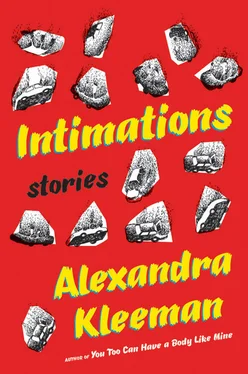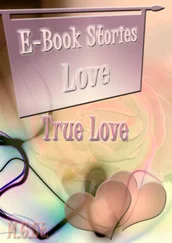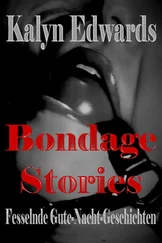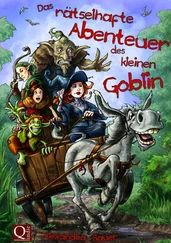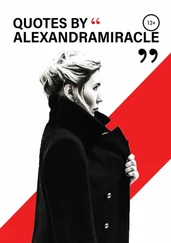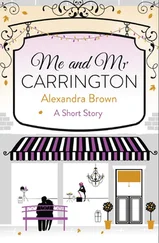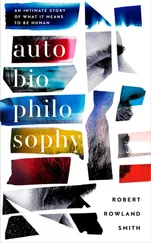After the announcement, people did one of two things. Either they tried to care more, or they tried caring less. They decided to survive, to collect and hide and ration, or they decided to let the amount of time left in their lives work away at them. They tried to grow vegetables in their small backyards or they let the yard get overgrown, falling asleep drunk in the afternoon on a lawn chair encircled by weeds. For a while we did whatever we had chosen with dedication. But it was difficult to stay dedicated for more than a few weeks, and eventually we middled, caring about things sloppily and in spurts. We poked at the dirt and then fell asleep, feeling that we should have done more or maybe less. In the end, there was only one kind of person.

In the master bedroom I turned down the sheets. My brother wouldn’t be back again, but I made the bed every day to be a good guest. I made it the hotel way, everything tucked in, the sheets stretched tight across the mattress and leaving no room to shift or wrinkle. Sleeping in it meant that you had to tear it all apart. I yanked the pillows out from underneath the blankets, pulled the sheets down to the foot of the bed, let the comforter fall to the floor. Then I climbed in.
I have one of the last working phones, I said out loud.
I had started sleeping with the lights on: I wanted more minutes of seeing, more things I could see if I happened to open my eyes. Outside the window there was snow falling, falling like movie snow, all the dreamy fluffy bits drifting around in the light of a single streetlamp. I wished that I loved the woman on the Disappearance hotline so that I could call and hear her voice anytime I wanted, and feel that feeling that it didn’t seem I’d be feeling again. Whoever loved her was lucky, if they were still around. I watched the snow slow down, thin out. Then it was two or three pieces at a time, falling reversibly, wavering up and down and up again like they didn’t know where to go.
The light stayed on for a few minutes. I saw my reflection in the window. Then the bulb blanked out overhead. In the dark I could hear the cord swinging empty above, but I saw nothing. I knew from the mounting silence that other things were vanishing too. They say everything in the world vibrates at its own specific frequency, each thing releases a tiny bit of sound. But nothing, nothing, doesn’t vibrate at all. I felt the heat radiating from my body with no place to go. Dots of darkness that weren’t really there drifted past my eyes. How would I know I was vanishing if there were nobody around to see me? What would tell me that I wasn’t just falling asleep? In the darkness I couldn’t see the disappearing any longer but I knew it was all going, going far far away. Until gradually I didn’t even know that anymore.
There was a woman in Lincoln, Nebraska, who claimed to be able to communicate with the disappeared. You could call her on the telephone and tell her who you were looking for, their full name, how old, how tall, how heavy. She would go out to the old well behind her house, a well that her grandfather had built decades earlier, and shout that information deep down into it. In the echo that came back they said you could hear whispers from the other side, your loved ones grabbing and molding the shouted words, distorting them to say what they needed said. You had to pay her in real gold, jewelry or bullion: it had to gleam. She wished we could hear their voices as she did, how happy they are, how they miss us. She said that everything that disappeared from our side went over to theirs, where they kept living normal lives, waiting for the things still lingering with us to join them, and make the world whole once more.
These stories were written in different places at different times, and they hold traces of so many different people that this acknowledgments page could become a never-ending list. Thank you to Claudia Ballard for having faith in me, for being there for me, for being able to see right into a story and point at its heart. Thank you to my editor, Terry Karten, for her vision, penetrating intelligence, and support, and to Heather Drucker, Cal Morgan, Laura Brown, Jillian Verrillo, and the rest of the team at Harper for working so hard for this book. Thank you to Barry Harbaugh for believing in me better than I could myself.
Thank you to Bard College, where I finished this collection and was amazed by the people around me. To Cheryl and John at VCCA France, where I wrote and also was a healthy organism, and to the Bread Loaf Writers Conference for being a magical place. Thank you to Robert Coover, Thalia Field, Nicholas Christopher, Heidi Julavits, Ben Marcus, Sam Lipsyte, Eric Chinski, and Rivka Galchen, who taught. To Lorin Stein, Bradford Morrow, Micaela Morrissette, Michael Ray, Andrew Bourne, Meakin Armstrong, and Willing Davidson, who edited. Thank you to Kathleen Alcott, JW McCormack, Shayne Barr, Kimberly Wang, Benjamin Hale, Jameelah Lang, Ariel Lewiton, Kara Gilvarry, Gwen Osborne, and Shawn Wen, who did some of everything. Thank you to my parents who loved me the whole time. And thank you to Alex Gilvarry, my first reader and favorite writer, the ideal person to love.
ALEXANDRA KLEEMAN
is a writer and scholar. She is the author of
You Too Can Have a Body Like Mine,
winner of the 2016 Bard Fiction Prize, and her short fiction has appeared in
The New Yorker, The Paris Review, Zoetrope: All-Story, Conjunctions, BOMB, Gulf Coast,
and
Guernica.
Her nonfiction has appeared in
Harper’s, Tin House, ELLE,
and
n+1.
She received her MFA in fiction from Columbia University, and has received grants and scholarships from the Bread Loaf Writers Conference, the Virginia Center for the Creative Arts, and the Santa Fe Art Institute. She lives in Staten Island.
Discover great authors, exclusive offers, and more at
hc.com
.
